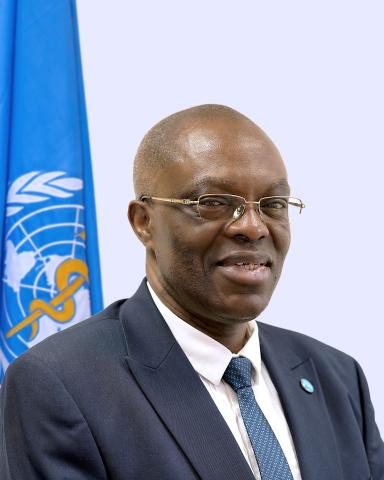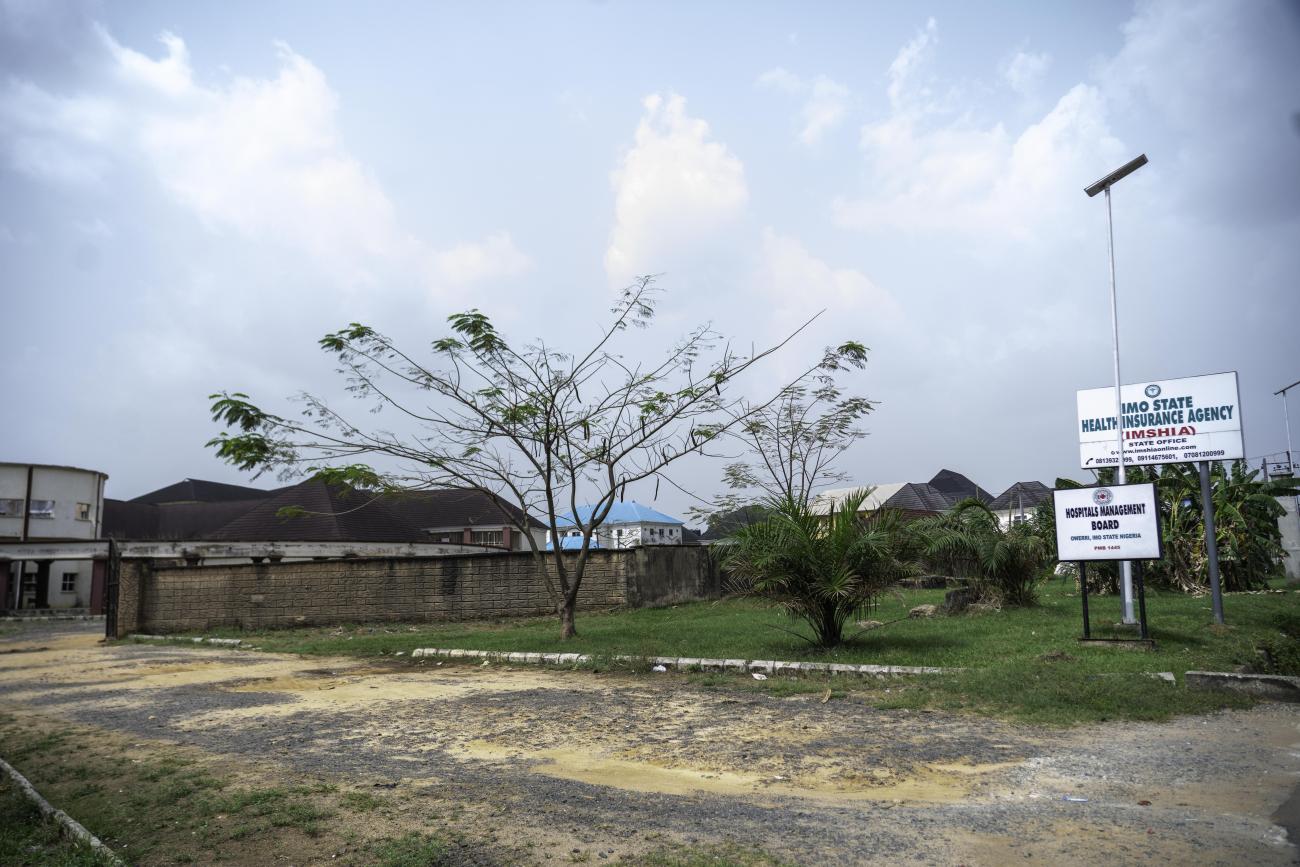The Imo State Health Insurance Agency has ensured that more people are protected against financial hardship when accessing health care, and the quality of PHC services has improved, which in turn increases the health seeking behavior of the population.
In Imo State, a high proportion of the population live in poverty, unable to afford to pay for basic health care. In 2018, a study showed that 92.3% of people pay for health services out-of-pocket and many are pushed into poverty as they are compelled to sell assets.
Over the past 3 years, across the whole of Nigeria, health insurance coverage has increased by 9 million people for predominantly poor and vulnerable Nigerians. They are now protected against financial hardship.
In Imo State, Nigeria, health insurance laws and the implementation of the Basic Health Care Provision Fund ensures that many more people can access the health services they need without suffering financial hardship.
“Medical treatments are usually so high. I don’t know where I would have found the money to pay for my hospital bills. I am very grateful to the Imo State Health Insurance Agency Team.”

“The Imo State Government is putting mechanisms in place to ensure the protection of all citizens against financial risks associated with health care in the state. Unfortunately, the demand for health services is relentless and people end up becoming poorer to stay alive whenever they are sick. These actions will mitigate the use of regressive out-of-pocket payments in health that pushes people into the vicious cycle of poverty, disease, and death.”

“The interest of our people is uppermost in our minds because there is no wealth without health. Every person who is enrolled in the insurance scheme will be treated and taken care of including routine medical checks. Let me thank the National Health Insurance Authority, the World Health Organization, and other partners for the consistent and constructive partnership they have extended to the State which has contributed significantly to this milestone.”

“As Legislators, we are directly involved in advancing the health insurance programme in Imo State from passing the Bill in the House to establishing the Agency. We are now closely monitoring ongoing implementation. This is because 60-70% of the pressure we get from our constituents is about health issues especially among the less privileged, the indigent, vulnerable groups, and those who cannot afford to pay for health services. I appreciate the technical support of the WHO so far and I am optimistic that this programme will be sustained, since the government of the day led by the Executive Governor is very committed and we are seeing the significant impact on lives.”

“More investment in health, and health insurance specifically, has huge returns for the economy. This is demonstrated by an investment case for health in Imo State, developed by WHO, that shows up to 200% increase in real GDP and 200% increase in the number of jobs created over 5 years. As health is a human right and duty of the state, WHO will work with Imo State to develop a plan that will guide a progressive increase in coverage to achieve the UHC benchmark of at least 80% of the state population.”
THE LONG READ
Favour Owuamanam, from Umuechetanmehe Amiri in Imo State, was 9 months pregnant and had been referred for a planned caesarean section due to the prospects of a high-risk delivery. When her labor started before her due date, she was rushed to Vaden Specialist Hospital for an emergency caesarean section and gave birth successfully. However, her baby had complications with neonatal asphyxia and jaundice and required additional care.
The Imo State Health Insurance Agency (IMSHIA) facilitated the immediate transfer of the baby to the special care unit in Imo State Specialist Hospital. Both mother and baby were covered under health insurance and did not need to pay for any services.
“Medical treatments are usually so high. I don’t know where I would have found the money to pay for my hospital bills. I am very grateful to the Imo State Health Insurance Agency Team,” said Favour.
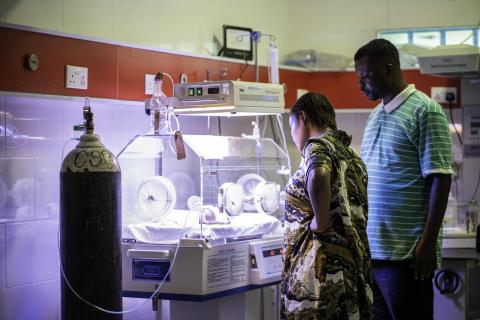
This is one of many health interventions by the Imo State Health Insurance Agency. The Agency has instituted one of the best and most responsive referral systems in Nigeria. In less than 10 months of implementation, over 516 cases have been referred through the health insurance programme, saving many lives through emergency surgery at no cost to the patient. This is a strong effort by the Government of Nigeria to ensure that its population is protected from financial hardship and is able to access timely and quality health services in line with the principles of universal health coverage (UHC).
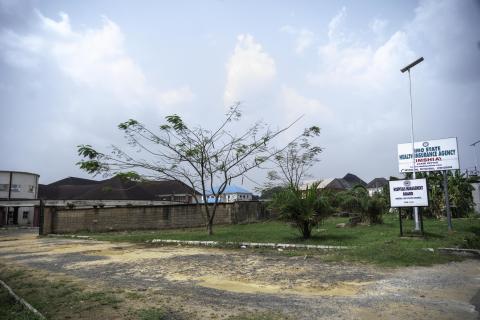
People’s need for financial protection
Imo State in Nigeria has a population of 5.8 million, and a high proportion of people are living in poverty, unable to afford to pay for basic health care services. A study in 2018 showed that only 1.7% of people are covered by health insurance and 92.3% of people pay out-of-pocket for health services.
Across the State, 84.1% of people live in rural areas and do not have access to lifesaving primary health care services such as vaccinations, maternal and child health services, and non-communicable diseases monitoring and treatment. This in turn leads to avoidable complications in health outcomes, and even death. When people do manage to access care, they are pushed deeper into poverty as they are compelled to sell their assets to pay for services out-of-pocket.
Engaging parliamentarians and the Executive to enable laws
The strategic engagement of Parliamentarians at the federal and state level under the Legislative Network for Universal Health Coverage (LNU) has enabled them to use their parliamentary functions of legislation, appropriation, representation, and oversight to place health high on the political agenda of the government. The key results are demonstrated in the enactment of mandatory health insurance laws and implementation of the Basic Health Care Provision Fund (BHCPF) in 2023, which changed the lives of many poor and vulnerable Nigerians in Imo State.
The BHCPF, implemented since 2023 by the Imo State Health Insurance Agency, ensures that all Imo State workers captured under the formal social health insurance programme, pregnant and vulnerable mothers, children under five, older people, and people living with disabilities are covered and can access health care.
To advocate and make a strong case for the establishment of the Imo State Health Insurance Program, WHO, through the UHC Partnership, helped establish the State Health Financing Unit and Technical Working Group in the State Ministry of Health. WHO technical staff then worked to build capacity and generate evidence through the following tools: Health Account Study, Household Survey for Out-of-pocket Expenditure, Investment Case for Health, Public Financial Management Assessment, Cross Programmatic Efficiency Analysis, Health Financing Governance and Political Economy Analysis, and Fiscal Space Analysis.
“The Imo State Government is putting mechanisms in place to ensure the protection of all citizens against financial risks associated with health care in the state. Unfortunately, the demand for health services is relentless and people end up becoming poorer to stay alive whenever they are sick. These actions will mitigate the use of regressive out-of-pocket payments in health that pushes people into the vicious cycle of poverty, disease, and death,” said Dr Uchenna Ewelike, Executive Secretary, Imo State Health Insurance Agency.

Sustained high-level advocacy by WHO resulted in better understanding and synergy between the Executive led by the State Governor and the parliamentarians, and this led to the speedy passage and ascent of the Imo State Health Insurance Bill into Law.
Nigeria is one of more than 125 countries and areas to which the UHC Partnership helps deliver WHO support and technical expertise in advancing UHC through a PHC approach. The UHC Partnership represents over 3 billion people. It is supported and funded by Belgium, Canada, the European Union, France, Germany, Ireland, Luxembourg, Japan, the United Kingdom of Great Britain and Northern Ireland, and WHO.
Reducing financial hardship in Imo State
WHO, through the UHC Partnership, also provided technical support to develop the State Health Financing Policy and Strategy and trained the State Health Financing Technical Working Group, which includes key Parliamentarians. In addition, it supported State Parliamentarians to participate in the annual Legislative Network for UHC summit over 5 years, including frequent evidence-based advocacy sessions to develop and enact the draft Imo State Health Insurance Bill into law. WHO provided technical support to develop the Imo State Health Insurance Operational Guidelines, develop the Benefit Package, and train Imo State Health Insurance Agency Staff. It also helped to develop the electronic platform for health insurance operations, assess and accredit providers, and conduct advocacy and engagement of key stakeholders including labor unions, community members, and private sector.
“The interest of our people is uppermost in our minds because there is no wealth without health. Every person who is enrolled in the insurance scheme will be treated and taken care of including routine medical checks. Let me thank the National Health Insurance Authority, the World Health Organization, and other partners for the consistent and constructive partnership they have extended to the State which has contributed significantly to this milestone,” said Distinguished Senator Hope Uzodimma, Executive Governor of Imo State.
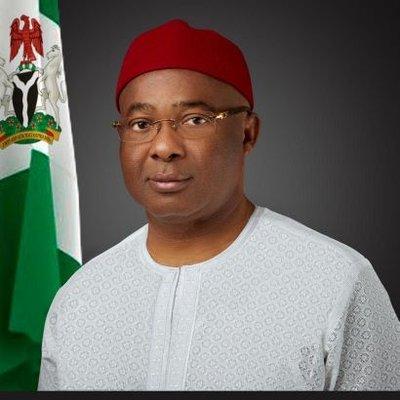
“As Legislators, we are directly involved in advancing the health insurance programme in Imo State from passing the Bill in the House to establishing the Agency. We are now closely monitoring ongoing implementation. This is because 60-70% of the pressure we get from our constituents is about health issues especially among the less privileged, the indigent, vulnerable groups, and those who cannot afford to pay for health services. I appreciate the technical support of the WHO so far and I am optimistic that this programme will be sustained, since the government of the day led by the Executive Governor is very committed and we are seeing the significant impact on lives,” said Hon. Samuel Otuibe, Imo State House of Assembly Committee Chairman on Health.
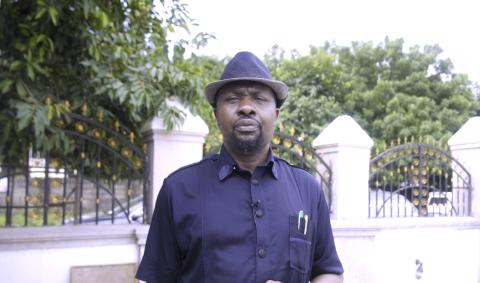
Impact on communities: health for all
Over the past 3 years, across the whole of Nigeria, health insurance coverage has increased by 9 million people for predominantly poor and vulnerable Nigerians. These people now have access to a defined package of health services in rural areas, which was also available during the COVID-19 pandemic. Vulnerable populations are protected against financial impoverishment through the Basic Healthcare Provision Fund (BHCPF) and an innovative adoption mechanism, whereby wealthy philanthropists pay premiums to cover poor and vulnerable community members.
In Imo State, 37,323 civil servants including local government staff, 84,955 people from underserved populations, 2500 Imo State University Students, and 332 people working in the informal sector are now enrolled in health insurance programmes and currently accessing care without financial constraint. The availability and quality of primary health care services in relation to human resource capacity, medicines, health commodities, equipment, infrastructure, and technology has vastly improved.
For example, IMSHIA trained the Officers in Charge of the Primary Health Centers in lifesaving skills, enabling them to save lives at their facilities and producing about 305 trained and certified PHC workers on lifesaving skills across Imo State.
There is an observed significant increase in the health seeking behavior of poor and vulnerable people in Imo given that the financial barrier to access quality health services has been removed.
Secondary Health Care Providers in Imo State are also now better positioned to provide quality health services, having followed rigorous processes to become accredited. At the secondary level of service delivery, the deployment of digital platforms for e-Claims management by IMSHIA has vastly improved health technology and human capacity in Imo State.
“More investment in health, and health insurance specifically, has huge returns for the economy. This is demonstrated by an investment case for health in Imo State, developed by WHO, that shows up to 200% increase in real GDP and 200% increase in the number of jobs created over 5 years. As health is a human right and duty of the state, WHO will work with Imo State to develop a plan that will guide a progressive increase in coverage to achieve the UHC benchmark of at least 80% of the state population,” said Dr Walter Kazadi Mulombo, WHO Representative to Nigeria.
